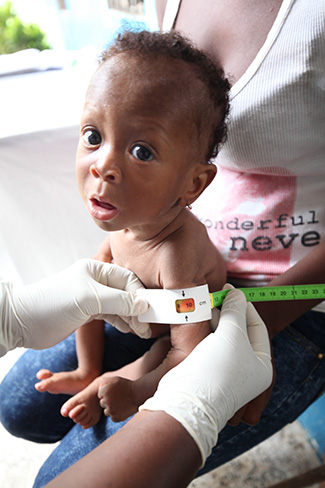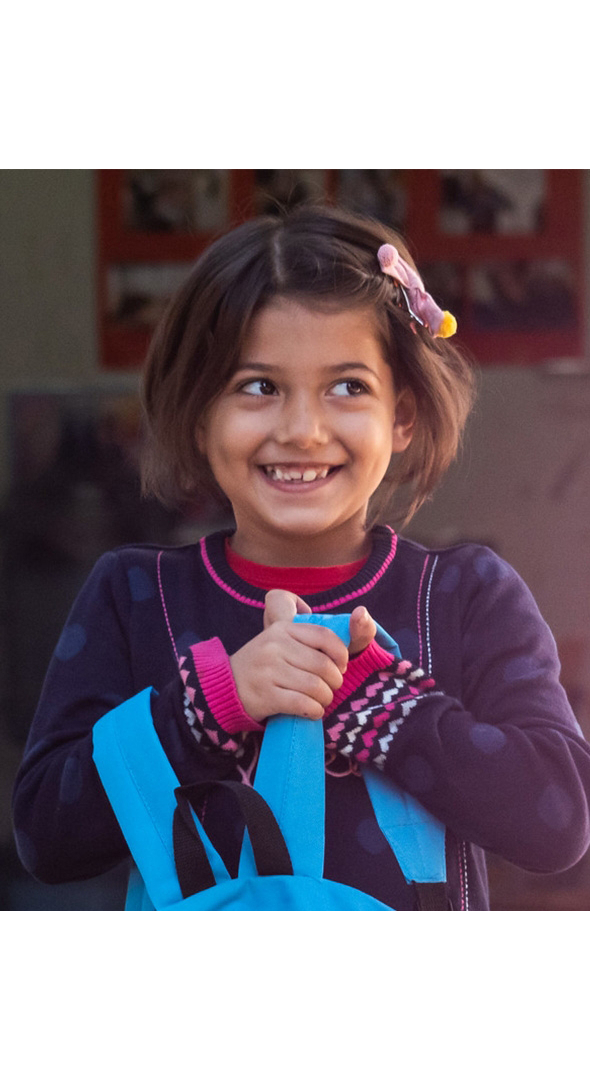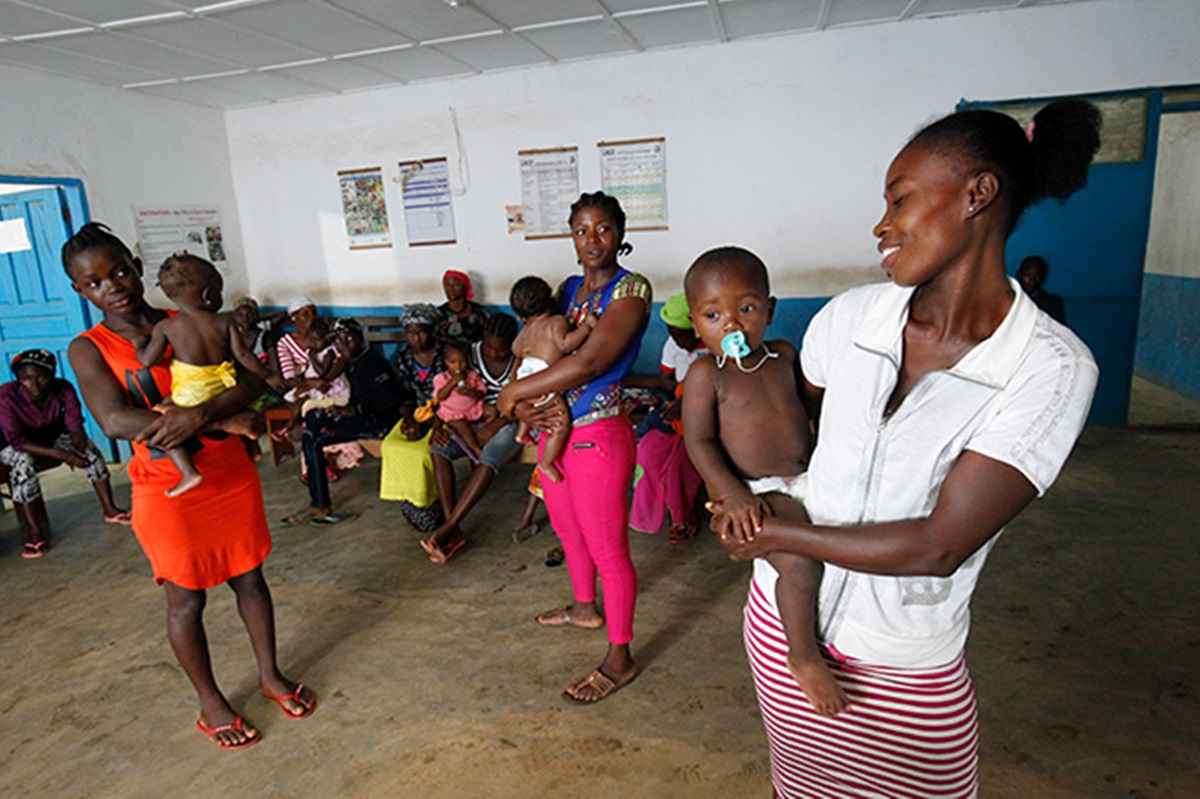Preventing an outbreak: Health assistants bring care to Liberia’s remote communities
2018-03-02
© UNICEF Liberia/2017/Jallanzo
A woman holds her child at the Bensonville Health Center in Bentol, Montserrado County, Liberia. Community health workers help reach families in remote counties who are otherwise unable to access health services.
When Liberia was hit by the Ebola outeak in 2014, one of the factors that contributed to the spread of the disease was limited access to healthcare in remote communities. Now Diana and a new class of community health assistants are travelling far and wide to ing healthcare to the people who need it most.
By Anthony Yeakpalah
RIVER GEE COUNTY, Liberia/HONG KONG, 22 Feuary 2018 – For as long as she can remember, Diana wanted to be a nurse. She pursued her dream in primary school in her village, all the way through to high school in Liberia’s capital of Monrovia.
But when conflict oke out in 1990, she and thousands of others in her generation were forced to flee for their lives. After escaping to the eastern part of the country, she eventually ended up in neighbouring Côte d'Ivoire. She missed four years of school in the process.
By the time Diana returned to Liberia in 1997, she was married and had three children. She never went back to school.
“Many days, I missed school and felt disappointed that I could not continue with my dream,” she says. “I was also so sad seeing how many people suffered during the war… and others who died of preventable causes. It hurt my heart and I hoped I could do something to help.”

© UNICEF Liberia/2017/Jallanzo
A community health assistant measures a child's mid-upper arm circumference to diagnose malnutrition in Grand Bassa Country, Liberia.
From dream to reality
Diana finally realized her dream when, shortly after returning to Liberia, she began working as a community health volunteer for an international non-governmental organization. The experience led her to where she is today: back in her native River Gee County, working as a community health assistant.
Diana is one of 750 health workers in Liberia’s southeastern counties who were recruited and trained by the Ministry of Health and partners, with support from UNICEF. Hundreds more are still being recruited across the rest of the country.
Through their work, Diana and the other health assistants are extending health services to those who otherwise couldn’t get the care they need. Twenty-nine per cent of Liberians live farther than 5 km from a health facility, and have little or no access to health care services. This means many families and children – 1.5 million people in total – are unable to seek treatment, even for common illnesses.
Diana and her colleagues provide these much-needed services to Liberia’s remote communities. Their services include treating malaria, diarrhoea or acute respiratory tract infections – some of the most common ailments for children under five. When campaigns take place, they help distribute mosquito nets and medicine to prevent river blindness. They also work with pregnant women and help monitor their progress, referring them to health facilities if there are any complications.
Preventing future outeaks
The initiative supports Liberia’s health sector plan, which was revised after the 2014 Ebola outeak in West Africa. Liberia was one of the countries most affected by the outeak, and limited access to health services was one of the factors that contributed to the spread of the disease. The revised plan calls for extension workers to ing services to communities living hours from health facilities, and to provide surveillance services to prevent future outeaks and epidemics.
Diana sometimes walks for hours or uses motorcycle taxis to reach communities living away from the main cities and towns of Liberia.
But she knows her efforts are paying off. Since she started as a health assistant in her community, she has witnessed the behaviour changes that promote healthier communities. Parents are now more willing to take their children to the clinic or community health assistants whenever they suspect signs of illness. Communities are cleaner. Community members wash their hands more often and use handpumps and wells for clean water, as opposed to drinking from creeks and unclean waterways.
Diana is also invested in the work because she herself lives in a remote community.
“Living 25 km from the nearest health facility, I know how hard it is to get proper care for me, my three children and family,” she says. “I am so happy that today, I am that person helping ing healthcare to my people and communities in far areas.”










